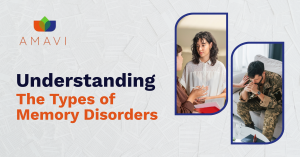Embarking on Ketamine-Assisted Psychotherapy (KAP) can be a transformative experience, offering new avenues for healing and personal growth. Proper preparation ensures that you maximize the benefits of each session while navigating the process with confidence and clarity. Gaining insight into the differences between KAP and more traditional therapeutic approaches can help you make informed choices about your treatment path.This guide covers essential mental and physical preparation tips, the importance of setting intentions, what to expect during KAP sessions, aftercare essentials, and answers to frequently asked questions.
Mental and Physical Preparation Tips
Preparing your mind and body for ketamine therapy is crucial to ensuring a safe and productive session.
Mental Preparation
- Educate Yourself: Learn about ketamine therapy and its mechanisms. Understanding how KAP works can alleviate anxiety and build trust in the process.
- Acknowledge Your Goals: Reflect on why you’re pursuing KAP. Are you seeking relief from depression, processing trauma, or gaining new insights into your life?
- Cultivate a Receptive Mindset: Approach the session with an open mind. Be ready to explore emotions or memories that might arise during the experience.
Physical Preparation
- Dietary Adjustments: Avoid heavy meals, alcohol, and recreational drugs for at least 24 hours before your session. A light, nutritious meal several hours before the session is ideal.
- Hydration: Drink plenty of water leading up to your appointment but limit fluids immediately before the session to avoid interruptions.
- Comfortable Clothing: Wear loose, comfortable clothing that allows you to relax fully during the session.
Logistical Preparation
- Arrange for transportation home after the session, as ketamine can impair your ability to drive or operate machinery.
- Clear your schedule to allow time for post-session rest and reflection.
The Importance of Setting Intentions
Setting intentions is a cornerstone of successful KAP. Intentions act as a guiding framework for your session, helping you focus on what you hope to achieve.
Why Intentions Matter
- They provide a sense of purpose, grounding your experience in meaningful goals.
- Intentions help you navigate the altered state of consciousness, directing your focus toward areas of growth and healing.
How to Set Intentions
- Reflect on your goals for therapy. Examples include exploring unresolved emotions, gaining clarity on life decisions, or finding relief from anxiety.
- Be realistic and flexible. Your session may unfold differently than expected, so stay open to surprises.
- Write down your intentions to solidify them and share them with your therapist before the session.
What to Expect During KAP Sessions
Understanding what happens during a KAP session can ease concerns and help you feel more prepared.
Pre-Session:
- You’ll meet with your therapist to review your intentions and address any last-minute questions or concerns.
- The therapist will explain the ketamine administration process, which may involve intravenous (IV), intramuscular (IM), or oral/nasal routes, depending on the treatment protocol.
Ketamine Administration
- The ketamine dose is carefully calculated and administered in a calm, supportive environment.
- As the medication takes effect, you may feel a sense of detachment from your body, altered perception of time and space, and heightened introspection. These effects are normal and temporary.
Therapeutic Process
- Your therapist will be present throughout the session, offering guidance and support. Some sessions involve minimal dialogue, while others may include prompts to help you explore your inner experience.
Post-Session Reflection
- After the ketamine effects subside, you’ll have time to process your experience with your therapist. This debriefing helps solidify insights and prepares you for integration work.
Aftercare Essentials
Aftercare is vital for maintaining the therapeutic momentum and integrating your insights into daily life.
Immediate Aftercare
- Rest is crucial after a session. Ketamine can leave you feeling drowsy or disoriented, so allow time to recover.
- Hydrate and eat a light, nutritious meal to replenish your body.
Integration Practices
- Journaling: Write down your thoughts, emotions, and any vivid imagery from the session. This practice helps clarify your experience and track progress.
- Meditation or Mindfulness: Engage in calming practices to process emotions and maintain focus on your intentions.
- Therapeutic Follow-Up: Attend integration therapy sessions to explore the session’s impact and develop actionable strategies for implementing insights.
Lifestyle Adjustments
- KAP often inspires changes in habits, relationships, or perspectives. Be intentional about incorporating these shifts into your life.
Frequently Asked Questions About Preparation
How should I mentally prepare for a KAP session?
Reflect on your reasons for seeking KAP and set clear intentions. Educate yourself about the process and cultivate an open, nonjudgmental mindset.
What should I avoid before my session?
Avoid alcohol, recreational drugs, and heavy meals for at least 24 hours. If you’re on medication, discuss potential interactions with your provider.
What does the session environment look like?
KAP sessions typically occur in a comfortable, private room with a calming atmosphere. You may be provided with an eye mask or headphones to enhance focus.
Will I lose control during the session?
Ketamine induces an altered state, but you remain conscious and aware. The therapist is present to ensure safety and provide grounding if needed.
How long do the effects last?
The acute effects of ketamine usually last 45–90 minutes. However, the therapeutic impact can extend well beyond the session, especially with proper integration.
How many sessions will I need?
The number of sessions varies based on individual needs and treatment goals. Your provider will recommend a personalized plan.
Conclusion
Preparing for your ketamine therapy journey involves more than just showing up to a session—it’s about creating the right mental, physical, and emotional conditions to support healing and transformation. By taking the time to prepare thoughtfully, setting clear intentions, and committing to aftercare practices, you can maximize the benefits of KAP and pave the way for lasting change.
Whether you’re seeking relief from depression, processing trauma, or gaining deeper self-awareness, preparation ensures that your experience is not only safe but profoundly meaningful. Embrace the process, and trust that every step—before, during, and after your session—is part of a larger journey toward healing and personal growth.





